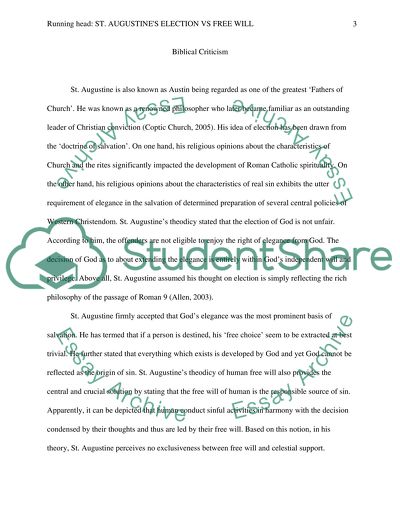Cite this document
(“St. Augustine's election VS free will Essay Example | Topics and Well Written Essays - 3000 words”, n.d.)
Retrieved from https://studentshare.org/religion-and-theology/1400389-st-augustine-s-election-vs-free-will
Retrieved from https://studentshare.org/religion-and-theology/1400389-st-augustine-s-election-vs-free-will
(St. Augustine'S Election VS Free Will Essay Example | Topics and Well Written Essays - 3000 Words)
https://studentshare.org/religion-and-theology/1400389-st-augustine-s-election-vs-free-will.
https://studentshare.org/religion-and-theology/1400389-st-augustine-s-election-vs-free-will.
“St. Augustine'S Election VS Free Will Essay Example | Topics and Well Written Essays - 3000 Words”, n.d. https://studentshare.org/religion-and-theology/1400389-st-augustine-s-election-vs-free-will.


